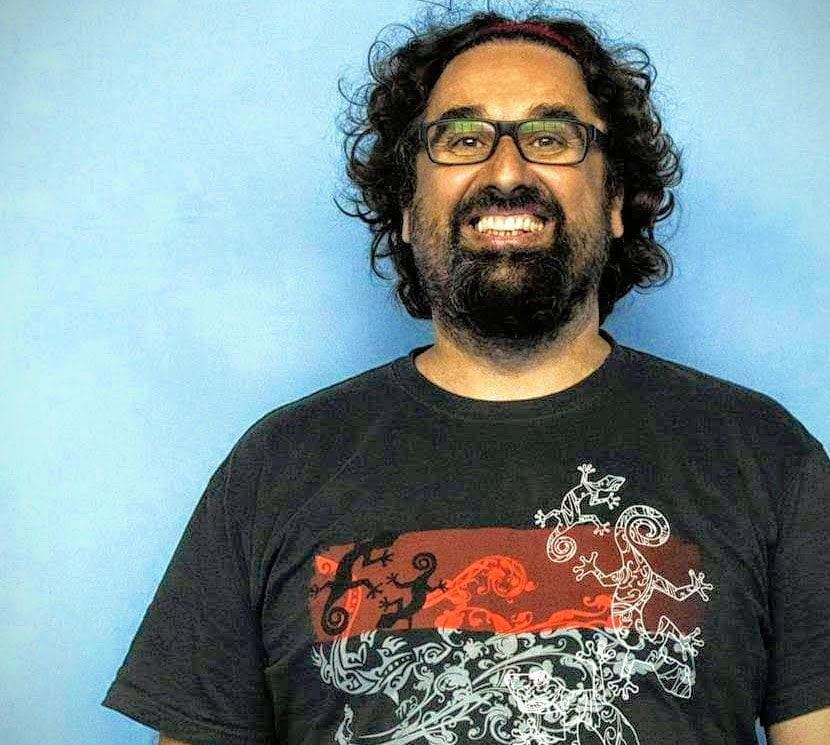|
#MAPP - Cafe I prepared a zoom link for a second Mapp - Cafe on sunday 5th of february 5pm cet:
Dieter Rehberg / somatic-training.com lädt Sie zu einem geplanten Zoom-Meeting ein. Thema: MAPP - Cafe 2 Uhrzeit: 5.Feb. 2023 17:00 Wien Zoom-Meeting beitreten https://us02web.zoom.us/j/81609880813?pwd=SDg4TldXb0RKMmhLNms2a1NFOVBrZz09 Meeting-ID: 816 0988 0813 Kenncode: 899346 Dieter
0 Comments
A Student of mine put my attention to a facebook post, and after applying some critical thinking I wrote an answer.
this text was posted on facebook site: “movement archery” of the two dance artists: Roser Tutusaus and Tom Weksler: “It is difficult to think, speak and write about the movement of the spine. To move it is quite easy though, furthermore it moves by itself. Arguably every movement we do includes spinal movement. Our body is filled with tracts, neural pathways that connect the central nervous system with the spinal cord. So in a way, every action goes through both the spine and the brain by default. The non-default is the scale of the movement and our ability to recognize it, both spatially and internally. Neuroplasticity relates to the ability to change the internal pathways of movement and information. That means to create new connections between a bodypart, space, brain and spine. So for example, if I always think about the hand and the fork when I cut a piece of Schnitzel and put it in my mouth, paying attention to my posture with every bite will eventually lead to neuroplasticity. Simple huh? Evidently, yes. Practically, no. The spine, like the brain, is an extremely vital thing to our being. Therefore, it is a very secured place. Just like any reflex of our body will resist throwing the weight of the skull towards a stationary object, most muscles in the body will take over resistance and motion much before the spine does. So when we think we move the spine we do it minimally and mostly move other things. And this is a good thing! Movement is best done through collaboration of coordinations and not as isolated patterns. Nevertheless, the dominance of accessible coordination over others eventually leads to kinesthetic stagnation and not to adaptation. In that sense despite the constant involvement, the spine moves "little". Drilling spinal waves or back bridges like there's no tomorrow is a questionable path towards making new neural pathways. They could be wonderful ways to condition or drill some patterns but the "core work" should be done through awareness to what we normally do without potent attention to the spine. To conclude, the study of the spine is rooted in allowing vulnerability and concentration. Both are universally primal, but rarely practiced in our adult life. "Life itself begins more with an inward spiral rather than an upward thrust" (G. Bachelard) *In the second paragraph, bodypart relates to the sensory information that is received or stored through a place in the body. So in this context, bodypart is a perceptive physical point.” This is my answer to the post:. The post is written in a very convincing language, but at least three things that are written in this post are not true: 1.) ” So in a way, every action goes through both the spine and the brain by default ” . There are a lot of nerves that do not go through the spine, because they directly come out of the skull. ( for instance the Vagus nerve) 2.) ”So for example, if I always think about the hand and the fork when I cut a piece of Schnitzel and put it in my mouth, paying attention to my posture with every bite will eventually lead to neuroplasticity.” Neuroplasticity is the ability of the Nerve System to change, develop and learn (which is meant by the word ”plasticity”). This process is happening all the time as long as the brain gets enough oxygen to be sensing inwards and acting outwards. Neuroplasticity does not depend on awareness or attention to happen. Just with awareness and attention and other helpful qualities of sensing the nerve system gets different, more helpful, information and can ”plastify” in a more helpful way. So coming back to the example of the post: First of all you need to sense knife and fork and not think about knife and fork in order to plastify the brain in a way that changes your activity. But if you do sense, neuroplasticity will happen already there. And sensing is going on all the time anyway, and sensing is going on all the time everywhere in the body, also always in both the hands and the spine. So by just sitting and cutting your schnitzel neuroplasticity is going on with consequences for your whole body. But only if you have a special attention and quality of sensing and use that in a dialogue to change your movements and actions the nerve system can plastify also in a more helpful way. 3.) ” Just like any reflex of our body will resist throwing the weight of the skull towards a stationary object, most muscles in the body will take over resistance and motion much before the spine does. ” A reflex is a specific pattern in the nerve system, where a specific sensory input leads to a specific reaction without a willful conscious decision. Inputs and reactions can be manifold. There are reactions that involve only specific muscles or organs, others involve body parts or the whole body. As far as I know there is no reflex that will resist throwing the weight of the skull towards a stationary object. We usually do not do that, because we have normally no reason for doing that, and we rationally assume that this will be painful, which has nothing to do with a reflex. But there are very special, abnormal circumstances where people do through their heads against walls. But once the head gets hurt, the pain can trigger a lot of reflexes. According to my understanding there is no usual first reaction of the extremities before a reaction of the spine in a case of resistance. But one would need to specify what incident would cause the resistance. A sting of a bee in your hand would cause a different reflex of resistance than a loud noise behind your back. More complex movement patterns, that build on the reflexes, do integrate first in the spine and later in the extremities when we learn to move as babies. Although I do agree with the author's conclusion that awareness is essential for changing movement patterns, I also think that in our profession we should try to be as precise as possible with our words, and not throw around with words like ”neuroplasticity” and ”reflexes” just to make our text sound more interesting And I think it always needs a helpful and healing quality of sensing to start a dialogue that is open ended and eventually can lead to more helpful and healing actions, that can lead to a more helpful plastification of the brain. all the best Dieter Rehberg I am still reading and stay inspired by Ernst von Glasersfeld Book: "Radical Constructivism"
I found video series on youtube about lectures Glaserfeld did at the university of innsbruck. it is always good to see how a thinker moves and speaks, it is like getting also the somatic information of the persons philosophy. https://youtu.be/NnKmuuy6aic other books that I found for my research:
while teaching todays SOMATIC MOVEMENT online class I realised that I have to think my talking and writing and advertising NOT from the capitalistic thinking of selling, but from describing somatics and my work as a healthy research in ones own life. And life is changing and developing all the time, that is why I cant and dont want to produce a product that I can multiply in an industrial way. I can offer real human connection, individual communication, care and solidarity, possibilties for learning and development
I should say and write and organise my website around that and make clear that also my website is in creative changing all the time as is life. finally I have time to follow my interest in reading.
So what i found yesterday was:
In this blog I will try to keep track from now on everything that I consider inquiry and learning to be used maybe in my MAPP research project:
|

 RSS Feed
RSS Feed

